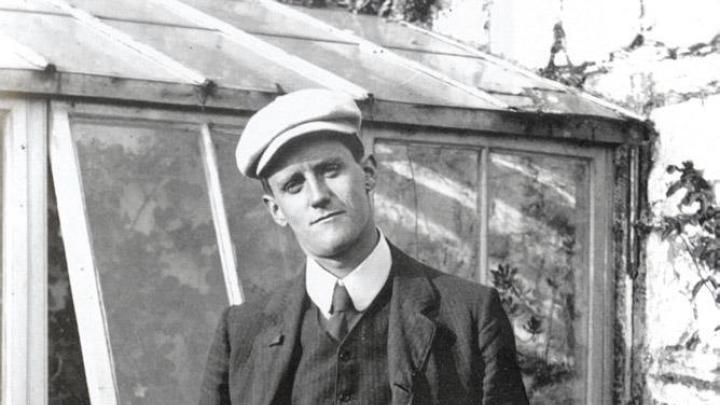Immigration Economics, by George J. Borjas, Scrivner professor of economics and social policy (Harvard, $49.95). A Kennedy School scholar’s technical synthesis of the theories and models used to analyze the flow of labor across boundaries. The econometrics aside, the author is aware of, and has been in the thick of, the “contentious policy concerns” accompanying the basic fact that “immigation has consequences,” because “some people lose while others benefit.”
Law of the Jungle, by Paul M. Barrett ’83, J.D. ’87 (Crown, $26). A journalistic account of the litigation led by Steven Donziger, J.D. ’91, against Texaco (and later its postmerger parent, Chevron), for pollution in Ecuador; the $19-billion judgment against the oil company; and the subsequent court proceedings that revealed misconduct on his part in pursuing the case for two decades.
Transformation of the African American Intelligentsia, 1880-2012, by Martin Kilson, Thomson professor of government emeritus (Harvard, $29.95). The first Africa-American faculty member to teach in Harvard College (1962) examines the evolution of a black elite from the post-Reconstruction era of institutionalized racism through the present.
The Land of the Elephant Kings, by Paul J. Kosmin, assistant professor of the classics (Harvard, $49.95). A scholarly history of the Seleucid Empire (311-64 b.c.e.), from Central Asia through Bulgaria, drawing on archaeological evidence and primary sources; the instability and human misery in many of the same regions today suggest the need for such historical perspective.
American Railroads, by Robert E. Gallamore, M.P.A. ’65, Ph.D. ’68, and John R. Meyer, Ph.D. ’55, late Harpel professor of capital formation emeritus (Harvard, $55). A comprehensive history of the industry’s decline and renaissance, by railroad lovers Gallamore, now retired from Union Pacific, and his mentor (also with experience at that company), who did much to establish the field of transportation economics and held faculty positions, over time, in the economics department and at the Business and Kennedy Schools.
Cheap and Clean: How Americans Think about Energy in the Age of Global Warming, by Stephen Ansolabehere, professor of government, and David M. Konisky (MIT, $27.95). “Americans are pragmatic,” the researchers find. They want cheap energy, and they want to avoid harm to their health. This “consumer model” dictates low economic and social costs: a local focus that treats global warming as a secondary concern (if that)—but still leads toward a changed energy future.
Projective Ecologies, edited by Chris Reed ’91 and Nina-Marie Lister (Graduate School of Design, $34.95). Lots of people on campus know the work of Chris Reed, principal of Stoss Landscape Urbanism, and in fact walk on it daily: he designed the Science Center Plaza. In this edited volume, with ample representation from Harvard authors (the design school, the Arnold Arboreteum), contributors probe the relevance of ecology for design and planning.
Reaching Down the Rabbit Hole, by Allan H. Ropper, professor of neurology, and Brian David Burrell (St. Martin’s, $25.99). Cases of brain disorders and diseases, evoking empathy for the neurologically impaired, presented for lay readers. And in a separate medical vein, Working Stiff, by Judy Melinek ’91 and T. J. Mitchell ’91 (Scribner, $25), classmates and a San Francisco couple (she’s the forensic pathologist, he’s the writer) collaborate on “two years, 262 bodies, and the making of a medical examiner”—a click-magnet subtitle if ever there were one.
Judging Statutes, by Robert A. Katzmann, Ph.D. ’78 (Oxford, $24.95). The author, chief judge of the U.S. Court of Appeals for the Second Circuit—and one of the rare federal judges with a doctorate in government—emphasizes the role of judicial interpretation of legislators’ work. In so doing, he poses challenges to a strictly textualist interpretation of the Constitution as an invariant guide to judicial reasoning when weighing what Congress thought it meant.
The Barbara Johnson Reader: The Surprise of Otherness (Duke, $99.95; $28.95 paper). A collection of essays by the late professor of English and comparative literature and Wertham professor of psychiatry and law in society, who died in 2009; Johnson was a prominent literary and cultural theorist and critic, and a celebrated translator of Jacques Derrida’s Dissemination.
Censors at Work, by Robert Darnton, Pforzheimer University Professor and University Librarian (W.W. Norton, $27.95). The preeminent historian of the book examines “how states shaped literature” (the subtitle) in eighteenth-century France, the British Raj in India, and communist East Germany. And in The Most Dangerous Book: The Battle for James Joyce’s Ulysses, by Kevin Birmingham, Ph.D. ’09 (Penguin, $29.95), a younger scholar (a lecturer on history and literature) examines the “transgressions” and lawyering over an iconic modern work.









